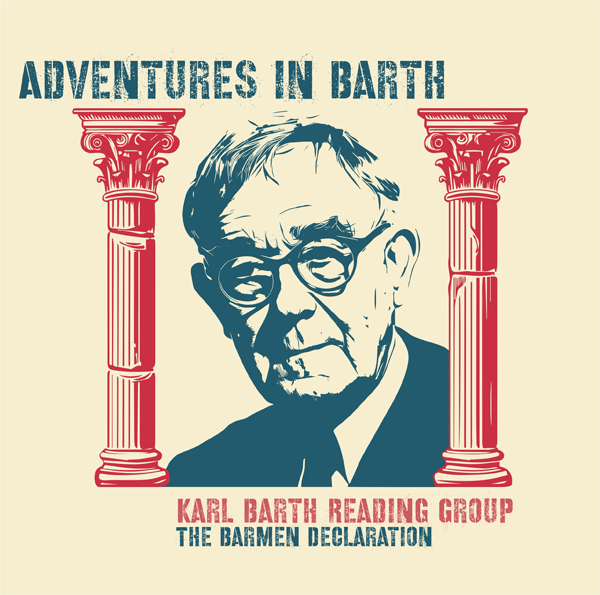Trump the Victim, Heroes Without Answers and More
 Is Trump a victim of a Deep State Witch Hunt? Writing at The Free Press yesterday, Trump’s former Attorney General, Bill Barr, had this to say:
Is Trump a victim of a Deep State Witch Hunt? Writing at The Free Press yesterday, Trump’s former Attorney General, Bill Barr, had this to say:
“For the sake of the country, our party, and a basic respect for the truth, it is time that Republicans come to grips with the hard truths about President Trump’s conduct and its implications. Chief among them: Trump’s indictment is not the result of unfair government persecution. This is a situation entirely of his own making. The effort to present Trump as a victim in the Mar-a-Lago document affair is cynical political propaganda.” (emphasis added)
I cite this for two reasons. First, Barr indicates that he has been as sympathetic as anyone to the With Hunt claims. He writes, “As his attorney general, I witnessed firsthand the unfair and venomous treatment he, and those in his administration, often received.” Second, when I wrote last week of being “Trapped in Trump World,” I called on his Republican enablers to stop giving Trump a free ride. Barr has done so and asked other Republicans — “for the sake of the country and our party” — to join him in a basic respect for the truth. Good on him.
The novelist Cormac McCarthy died last week. Even if you haven’t read any of his books, chances are that you have seen a movie based on his novels, maybe “The Road,” or “No Country for Old Men.” If the official religion of America is, as some say, optimism, then McCarthy was a heretic of the first order. His was a dark vision that looked at evil as clearly as he looked at the southwest landscape, the borderlands, where he set much of his work.
In his review of McCarthy’s work at Commonweal Matthew Boudway had this to say about the villains and heroes in his work:
McCarthy’s most memorable villains — Judge Holden, Anton Chigurh in No Country for Old Men (2005), a Mexican sheriff in All the Pretty Horses (1992) — tend to be certain about everything, and about themselves above all. Their absolute certainty makes courage unnecessary, since courage always answers to risk, and, for these characters, all of them paid-up determinists, there can be no real risk, for the outcome is never in doubt. McCarthy’s heroes, by contrast, don’t pretend to have all the answers. They often find themselves stumped or thwarted; they are subject to doubt and capable of regret. McCarthy’s heroes hope there’s a world to come but fear there might not be. His villains and antiheroes, meanwhile, are sure there isn’t one, and they’re glad of it.
 I liked the way Boudway sums up this aspect of McCarthy’s work. The villains “tend to be certain about everything, and about themselves above all.” But “McCarthy’s heroes, by contrast, don’t pretend to have all the answers . . . they are subject to doubt and capable of regret.” Tommy Lee Jones evokes this powerfully as Sheriff Bell in “No Country for Old Men.”
I liked the way Boudway sums up this aspect of McCarthy’s work. The villains “tend to be certain about everything, and about themselves above all.” But “McCarthy’s heroes, by contrast, don’t pretend to have all the answers . . . they are subject to doubt and capable of regret.” Tommy Lee Jones evokes this powerfully as Sheriff Bell in “No Country for Old Men.”
McCarthy describes the world I, and we, live in. A world of school shootings, cancer, addiction, wars and war crimes where evil overwhelms us and we are, at least at times, out of answers. In that sense it is a “Good Friday” world, which leads to . . .
A show-stopping quote cited by my pal Roy Howard. While leading a retreat for church officers this past weekend, Roy shared a quote from C. S. Lewis, after which there was a, “you could hear a pin drop silence.” Here’s the quote from C. S. Lewis in A Grief Observed:
“My idea of God is not a divine idea. It has to be shattered time after time. He shatters it Himself. He is the great iconoclast. Could we not almost say that this shattering is one of the marks of His presence? The Incarnation is the supreme example; it leaves all previous ideas of the Messiah in ruins. And most are ‘offended’ by the iconoclasm; and blessed are those who are not. But the same thing happens in our private prayers. All reality is iconoclastic.”
Roy adds, “God is always shattering our illusions and reified ideas. This moment is the time to consider a whole new way of being church in a secular age where faith in the living God is a radical proposition. The congregational leaders began considering the purpose of a congregation that takes seriously faith in the living God, who first priority is those seeking salvation (under many expressions). How might that purpose rearrange and re-direct everything? What if proclaiming salvation — the healing of all people in Jesus Christ is the purpose?”
![Anthony B. Robinson [logo]](https://www.anthonybrobinson.com/wp-content/themes/anthonybrobinson/images/logo.png)
![Anthony B. Robinson [logo]](https://www.anthonybrobinson.com/wp-content/themes/anthonybrobinson/images/logo-print.png)
